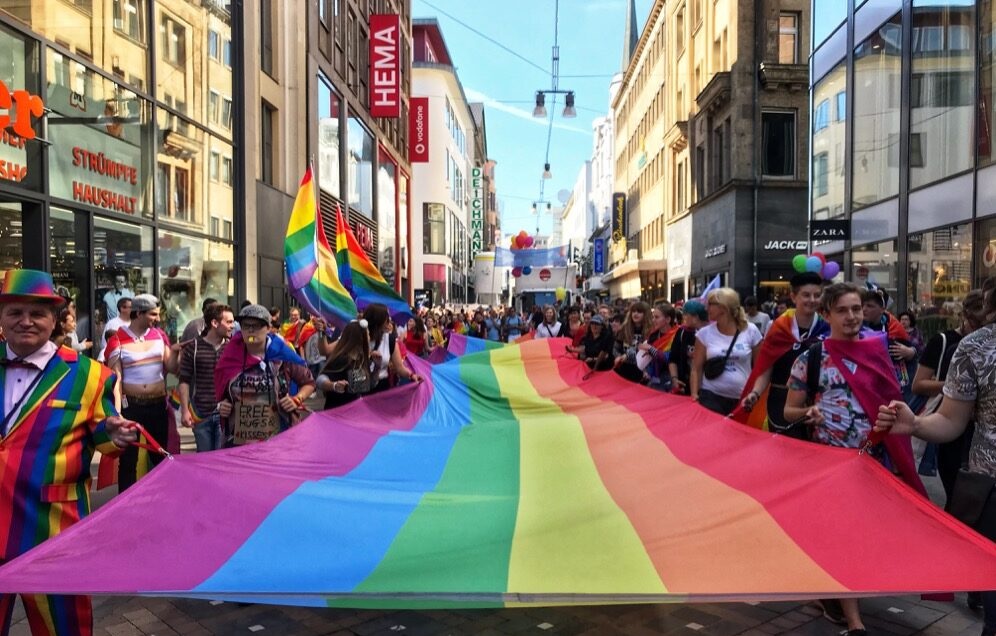The abbreviation "CSD" ("Christopher Street Day") is used to describe events where often millions of people gather in one place to take to the streets for the rights of the LGBTQIA+ community. The culmination is often colorful parades. Often, various action alliances are represented. But there are also numerous associations that use the CSDs to draw attention to themselves and their work.
Even though CSDs always have a specific motto, they are - expressed in general terms - about more tolerance and equality on different levels. In the meantime, CSDs are by no means only held in the larger cities. Even in small towns, people who stand up for the demands of the queer scene are increasingly being heard.
The CSD and its long history

The fact that the events, which are intended to provide more rights and more visibility for the LGBTQIA+ community, are called "CSD" is no coincidence. The name "Christopher Street Day" refers to Christopher Street in New York City. This is where the Stonewall riots occurred in 1969. At that time, many queer people stood up against the arbitrariness of the police. The whole thing quickly became the focus of the media and the corresponding protests are considered the symbol of the classic CSDs - until today.
Particularly in Germany, CSDs also repeatedly commemorate the terrible crimes that numerous queers were confronted with during the Second World War. Many were killed in concentration camps. And even after the war, it was still considered illegal to be gay, for example.
What issues are addressed through the CSDs?
The range of topics, which are brought to the public with the help of the CSDs, is multifaceted. Even though tolerance and equality still play an important role here, many organizers have now moved on to being a bit more "detailed" and making explicit demands on politicians. One topic that has been taken up again and again in recent years is the demand for stricter and harsher punishment for hate crimes based on the sexual orientation of the victims.
In the course of time, many goals have already been achieved. But: Of course, there is still a long way to go.
Who attends the Prides?
If you take a closer look at the audience at Prides, as the CSDs are also called, you will quickly realize that it's not just people from the scene who are there. Rather, those who feel connected to the community in a special way, who want to support it and at the same time inform themselves, also come.
And there are many ways to do just that. Because: Even if many people think of colorful parades and flashy costumes when they think of the classic CSD, the participants and the organizers are concerned with more. Therefore it explains itself, why many CSDs extend over several days. The parade then usually only forms the crowning conclusion.
Visitors who feel like learning about different action alliances and finding out how they can support the community can also listen to various presentations and connect with each other.
In short: A CSD is much more than just a "colorful party". It is about standing up for oneself and one's rights and gaining more visibility. In the meantime, Christopher Street Days are also celebrated in many traditionally influenced countries of the world, where the scene fights every day to be seen as "quite normal".

The CSD is simply the best thing there is in Germany. From a demo to the best parade in the country. All who are there are openly permissive and sociable. You can just have a lot of fun.